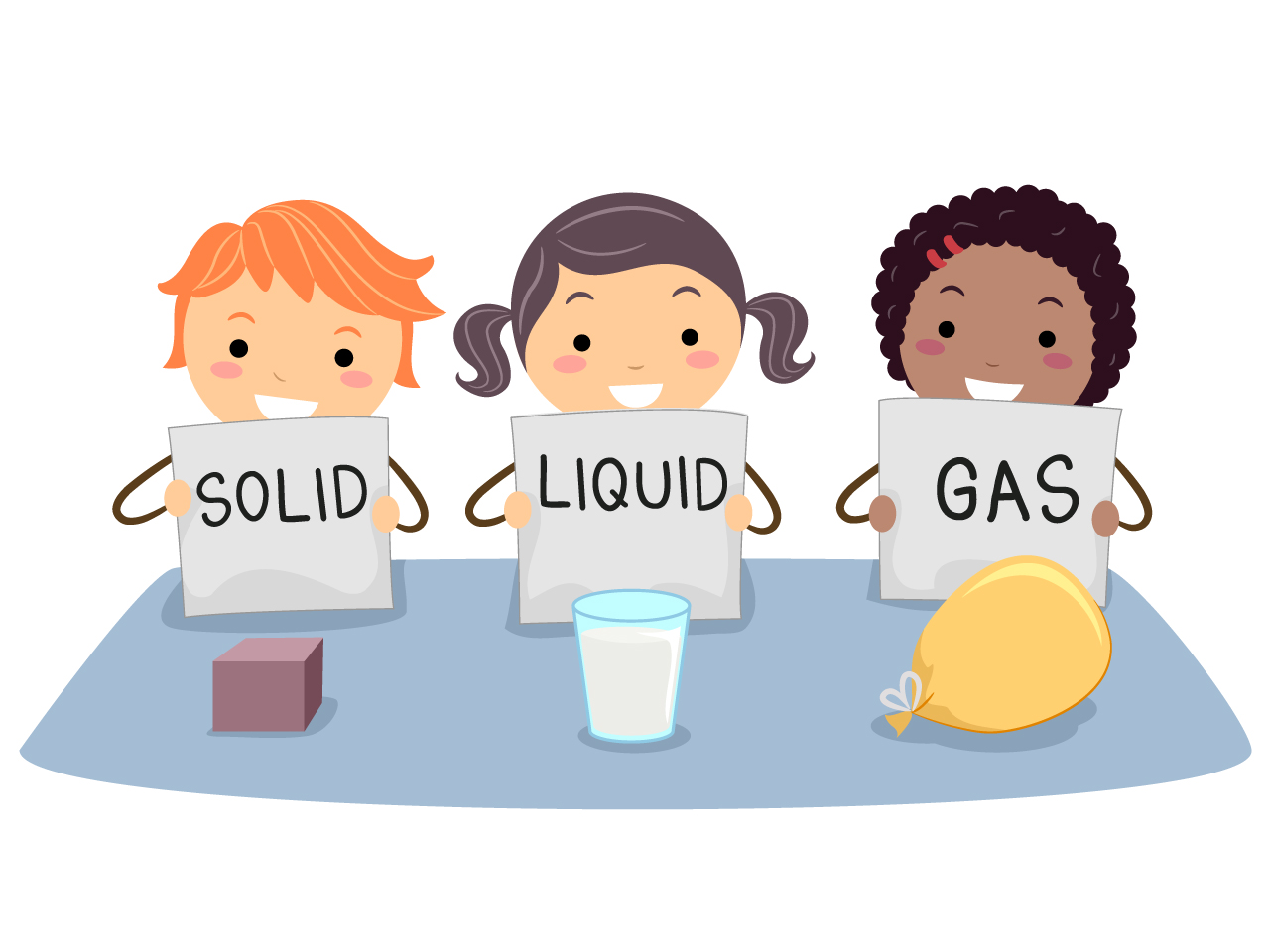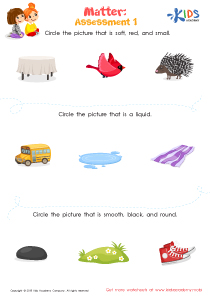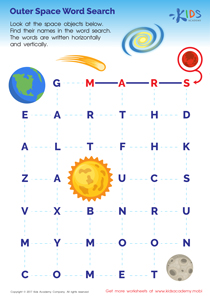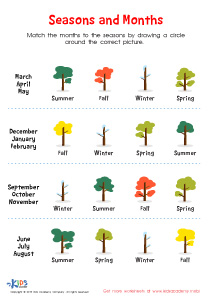Understanding life cycles Grade 2 Life Science Worksheets
3 filtered results
-
From - To
Explore "Understanding Life Cycles" Grade 2 Life Science Worksheets designed to engage young learners in the fascinating patterns of growth and change in living organisms. These worksheets, perfectly tailored for second graders, focus on various stages of life cycles including plants, animals, and insects. Enhance your child's knowledge with fun, educational activities that bolster critical thinking and observational skills. Comprehensive and kid-friendly, each worksheet simplifies complex concepts through engaging illustrations and interactive tasks, making science fun and approachable. Foster a love for life science and help your child excel in school with these expertly crafted educational tools.
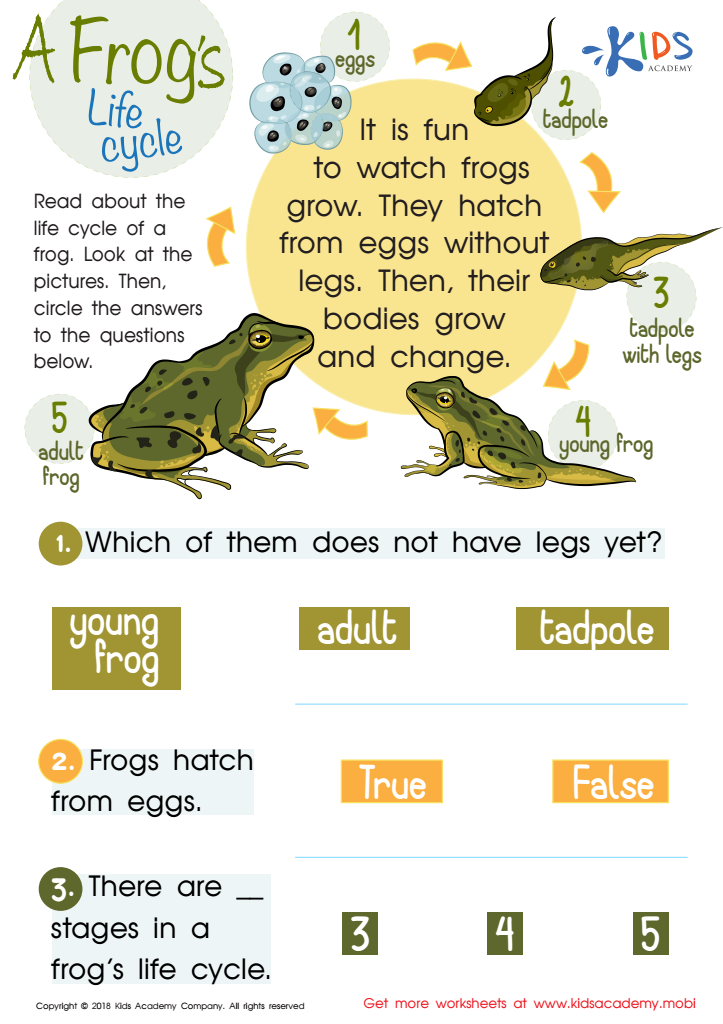

A Frog’s Life Cycle Worksheet
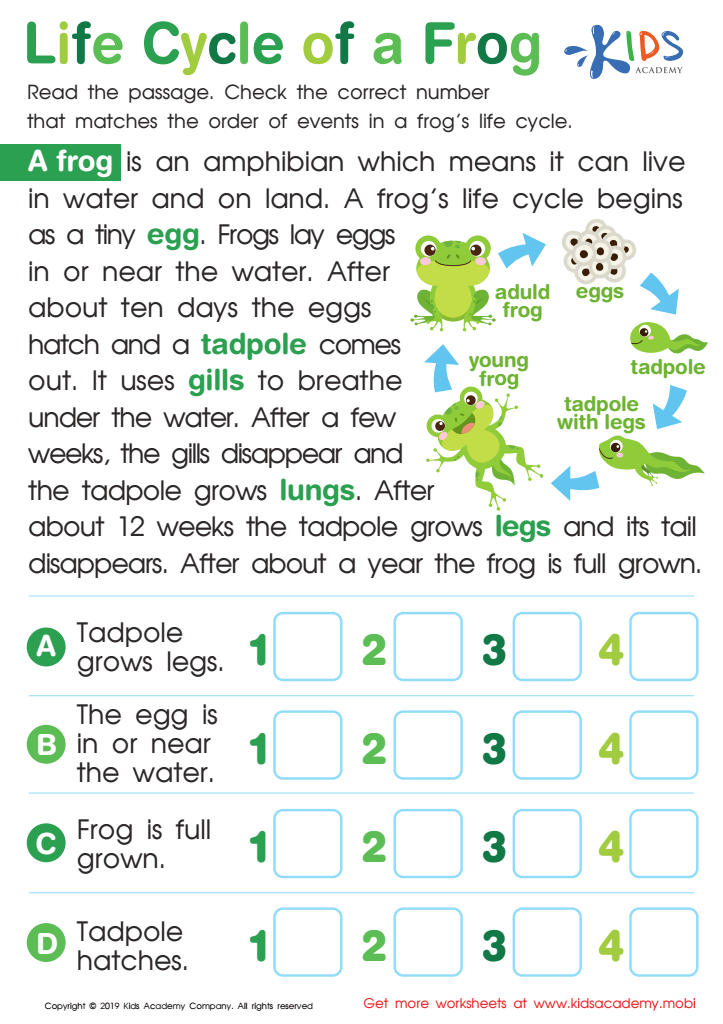

Life Cycle of a Frog Worksheet
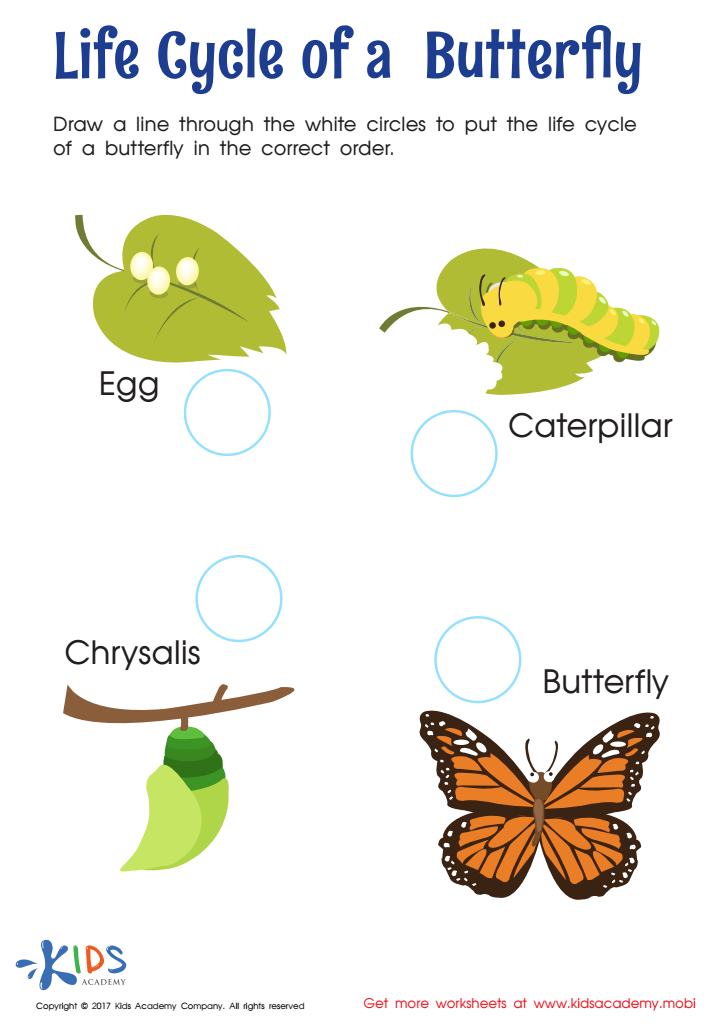

Life Cycle of Butterfly Worksheet
Understanding life cycles is a crucial component of the Grade 2 Life Science curriculum, and it holds significant value for both parents and teachers. At this developmental stage, children are naturally curious about the world around them. Learning about life cycles helps satisfy this curiosity by revealing the processes that enable life to thrive, change, and evolve.
For one, exploring life cycles fosters a sense of wonder and appreciation for nature among young students. When children comprehend how plants and animals grow, reproduce, and eventually pass away, they begin to appreciate the complexity and interconnectedness of life. This understanding can cultivate respect for the environment and encourage students to be conscientious about their actions regarding nature.
Moreover, learning about life cycles helps develop critical thinking and observational skills. When students examine stages like a butterfly transitioning from an egg to a caterpillar, pupa, and finally an adult butterfly, they practice analyzing, comparing, and classifying information. These skills are foundational for scientific inquiry and can be applied across various disciplines.
For parents, engaging in their child's learning process about life cycles creates rich opportunities to connect and foster shared learning experiences. For teachers, it enables the integration of interdisciplinary approaches, linking science with subjects like math (measuring growth rates) and literacy (reading about different organisms).
Overall, understanding life cycles enriches a child's educational journey and equips them with lifelong skills.
 Assign to My Students
Assign to My Students




